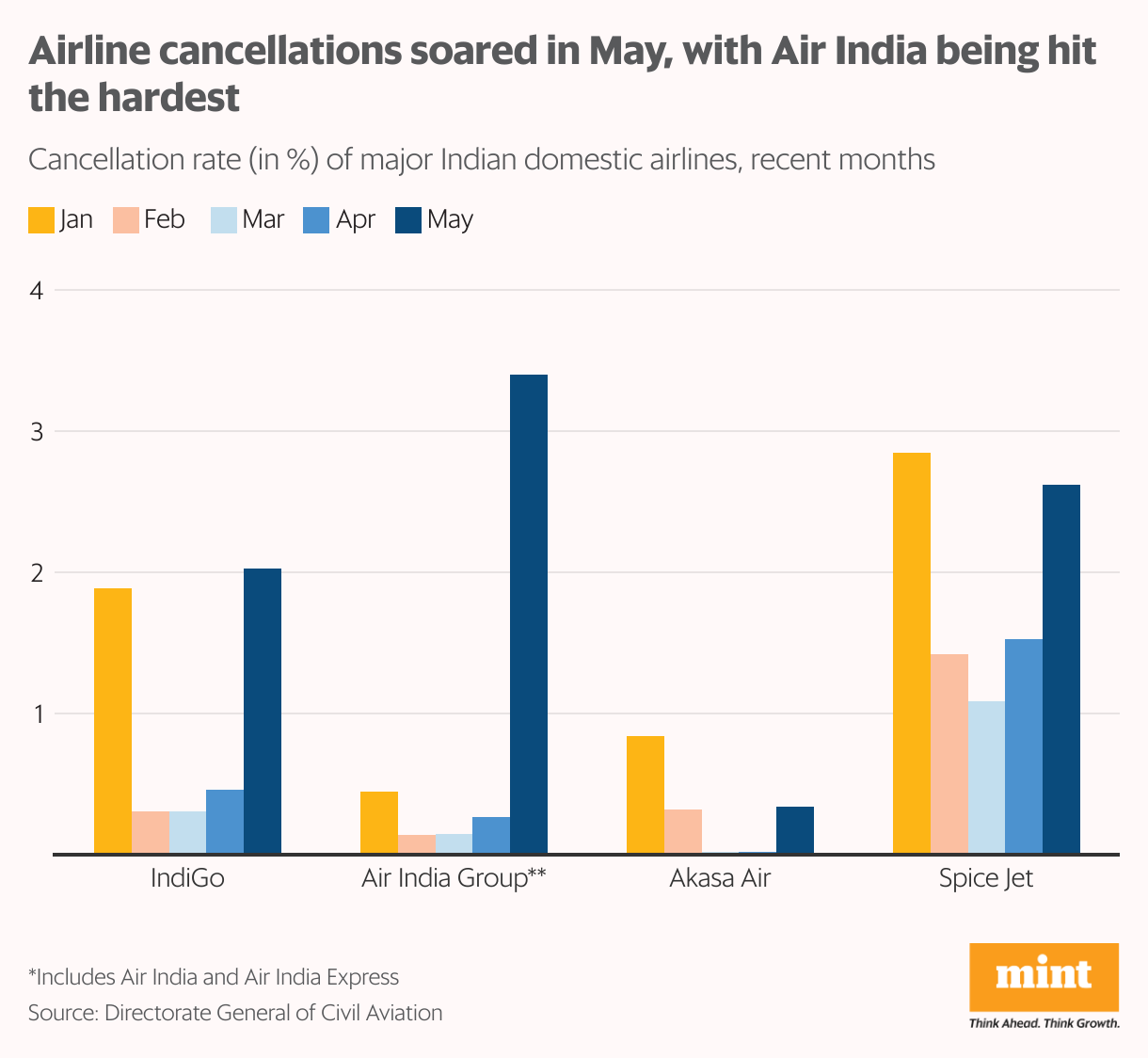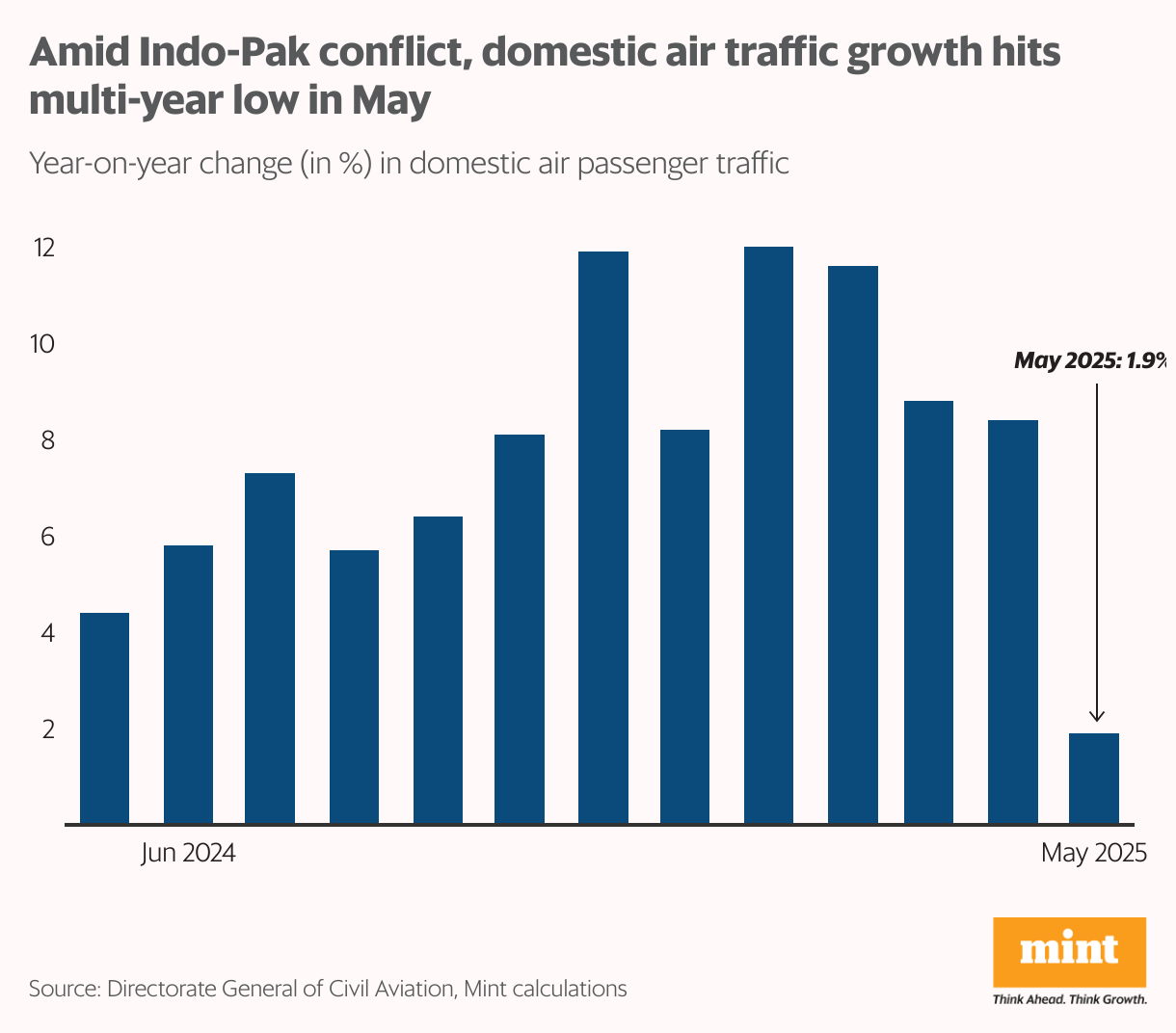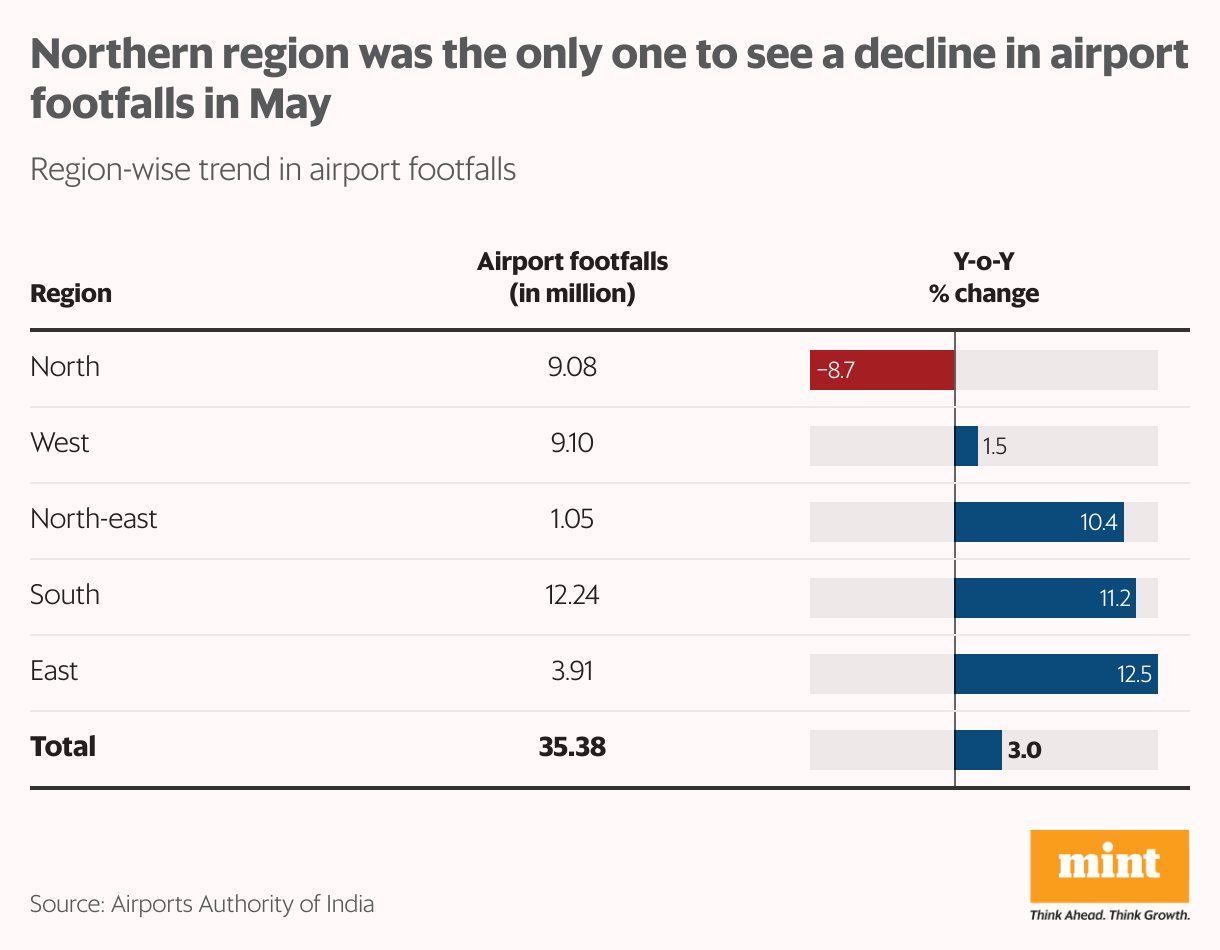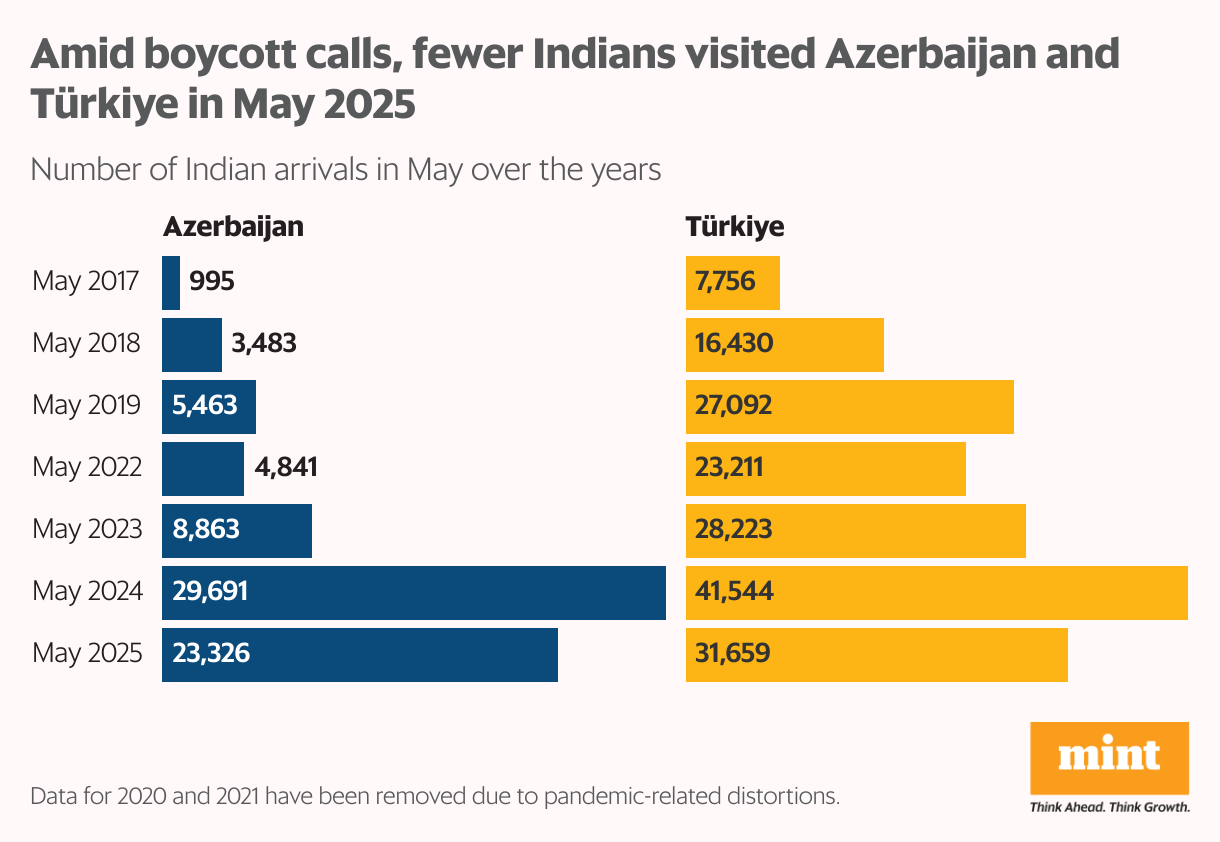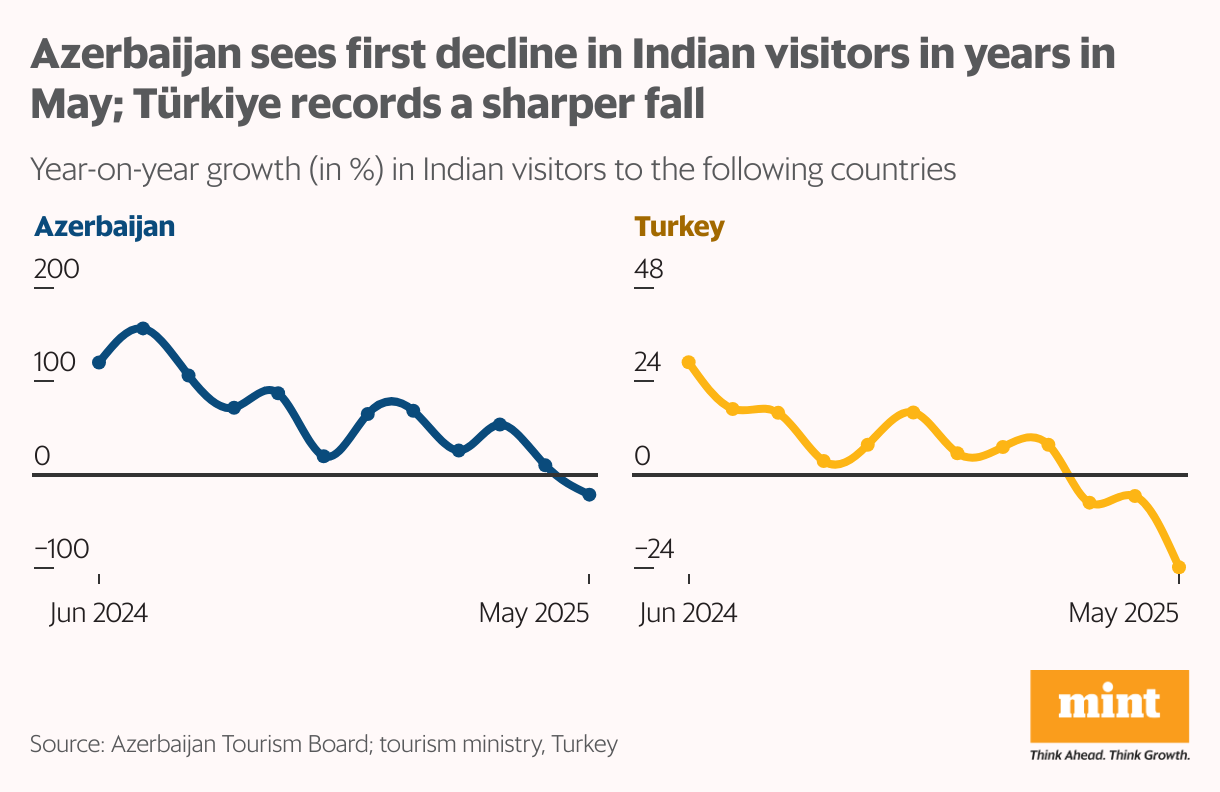The four-day conflict between India and Pakistan left the entire country on edge. Its impact was felt on the airline industry as flight cancellations soared and air passenger traffic growth slowed in May. At the same time, calls to boycott Azerbaijan and Türkiye were made after the West Asian nations seemingly supported Pakistan over India, which resulted in fewer visits by Indians during the month.
Following the Pahalgam attack on 22 April, India launched precision strikes—Operation Sindoor—on terrorist infrastructure in Pakistan and Pakistan-occupied Jammu and Kashmir early on 7 May. Pakistan then struck India in the border regions, which led to drone strikes between the two countries for four days until an understanding of ceasefire was achieved.
Impact on airlines
As India’s border regions came under heavy attack from Pakistan, as many as 32 airports in northern and western states were shut down. On day one of the conflict, over 50 flights were cancelled. The latest data released by the Directorate General of Civil Aviation (DGCA) for May shows the extent of disruptions, from increased airline cancellations to a sharp decline in domestic passenger traffic growth. Despite lasting only a few days, the conflict seemingly left a sizeable—though temporary—impact on the airline industry.
Airline-wise data shows Air India was particularly hit in May, with a 3.4% cancellation rate, the highest among four major airlines by market share, and a sharp rise from just 0.27% the previous month. IndiGo and SpiceJet also saw an increased cancellation rate at 2.03% and 2.62%, respectively. The cancellation rate was lowest for Akasa Air, 0.34% as against none reported in the previous month.
As airports were shut and flights were cancelled, domestic air passenger traffic growth plummeted to the lowest since March 2022. Passenger air traffic grew only 1.9% in May, much lower than the 8.4% growth recorded in the previous month. The northern region was the main catalyst for this, as shown by additional airport footfall data (domestic and international) from the Airports Authority of India. The western region was also hit, but the impact was less pronounced. Airport footfalls declined 8.7% year-on-year in the northern region in May, while they grew only 1.5% in the western region. In April, the northern region had recorded 7.3% growth and the western region 8.3%.
Boycott impact
During the conflict, both Azerbaijan and Türkiye supported Pakistan. The latter reportedly supplied drones to Pakistan, which raised security concerns in India and soured relations between the two countries.
The issue spiralled into calls for a boycott, especially after travel website Ixigo suspended flight and hotel bookings. Several anecdotal evidence pointed to Indians cancelling their plans to these countries. Tourism data from both countries for May now confirms the development to some extent.
The number of Indian visitors to Azerbaijan fell to 23,326 in May from 29,691 in the same month a year ago. Similarly, 31,659 Indians visited Türkiye in May as opposed to 41,544 a year ago. While Azerbaijan recorded its first decline (21.4%) in Indian visitors at least since 2018 (excluding the pandemic years), Türkiye recorded its third straight month of decline. However, the decline was quite sharp compared to the previous two months.
In the past few years, Azerbaijan and Türkiye saw increased tourism from India. In Azerbaijan, Indian tourists make up around 10% of total tourists. While the share is minuscule in the case of Türkiye, at around 0.7%, it saw increased year-on-year growth in visits by Indians. Despite the decline, Azerbaijan still witnessed the third-largest visitors from India in May. In this context, Azerbaijan may be more vulnerable to boycotts from Indian tourists than Türkiye.
It is, however, not clear how important both nations have become in the past year. Detailed tourism data, which is available only until 2023, shows that neither Azerbaijan nor Türkiye were among the top destinations for Indian departures.
Although the Indo-Pak conflict caused only temporary disruption to the airline industry, it is unclear whether its effect on tourism from India to Azerbaijan and Türkiye will extend beyond May.

